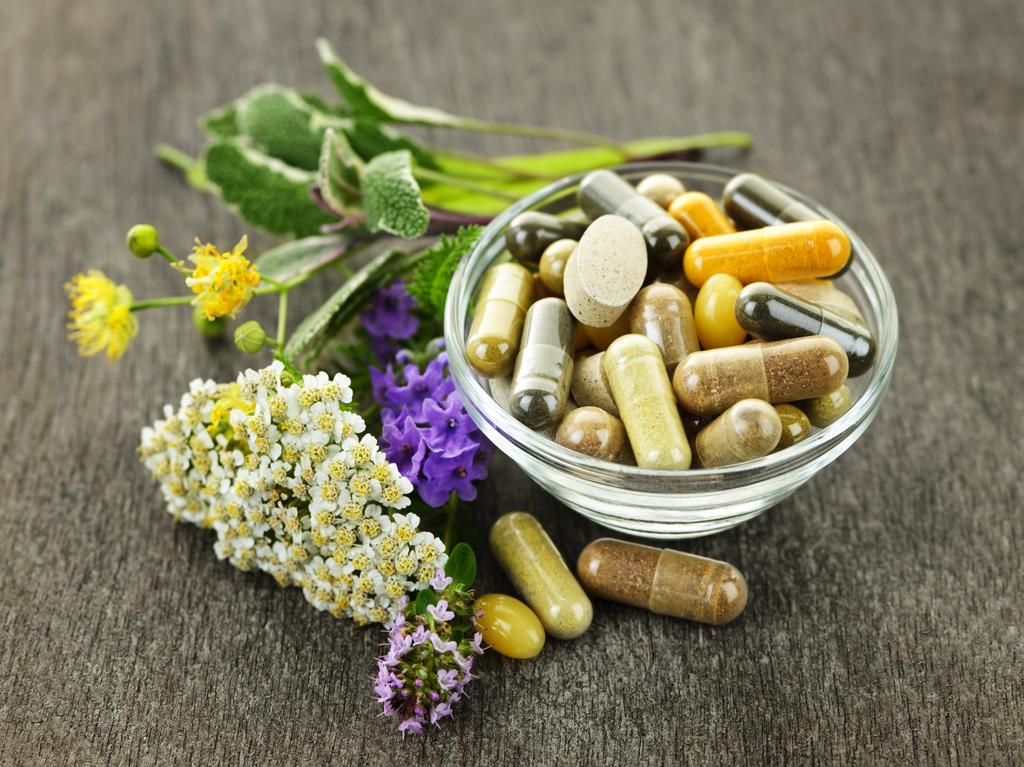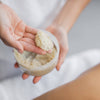The Best Vitamins for Hair Growth and Thickness

Are you noticing more hair in your brush than usual? Your not-so-ideal diet could be the culprit! Certain vitamins and minerals are essential for maintaining healthy hair follicles. They can significantly improve your hair’s thickness and quality, especially if you take these vitamins while using nourishing hair care products.
Today, let’s explore all the vitamins good for hair growth and find out exactly how they contribute to achieving thicker, fuller hair.
What Are Essential Vitamins for Hair Growth?
Healthy hair starts from within, and the right vitamins can make a significant difference in the strength, shine, and thickness of your locks.
Key benefits of vitamins for hair:
- Vitamins enhance cell growth.
- They help mitigate oxidative damage.
- They nourish the hair follicles, promoting new growth and preventing premature greying.
- Vitamins help maintain scalp health by regulating oil production.
- They improve hair texture, making it smoother and more resilient.
- Vitamins support natural hair colour retention and delay the onset of greying.
However, if your hair is falling out excessively, seeing a healthcare professional is necessary to determine if you have an underlying medical condition that needs attention. Nutrient deficiencies are just one piece of the puzzle when it comes to hair loss.
Vitamin and mineral supplements
While a balanced diet rich in essential vitamins and minerals is the foundation of healthy hair, sometimes, even the most well-rounded diet may not provide all the nutrients your body needs to support optimal hair growth. Supplements can fill the gap. They are particularly recommended to those who regularly:
- consume caffeine
- use medications
- drink alcohol
- experience stress
- have demanding routines that might deplete micronutrient levels
Now, let’s see how specific vitamins and minerals contribute to healthier, thicker hair and why they’re essential to your hair care routine.
1. Vitamin A
Vitamin A is essential for cell growth, which includes hair, the fastest-growing tissue in the human body. It boosts the production of sebum, an oily substance that moisturises the scalp and keeps hair healthy. Without sufficient sebum, the scalp can become dry, leading to itching and dandruff, which can negatively impact hair health and growth.
- How to use vitamin A: The recommended daily intake of vitamin A is up to 900 mcg for men and 700 mcg for women.
- Foods rich in vitamin A: To boost your vitamin A levels, eat food items high in beta-carotene, which your body turns into vitamin A. These include sweet potatoes, spinach, pumpkins, kale and carrots, as well as animal products like cod liver oil, eggs, yoghurt, and milk.

2. Vitamin C
Hair loss can be triggered by oxidative stress, which occurs when there’s an imbalance between free radicals and antioxidants in the body. Vitamin C helps combat this by strengthening your body’s antioxidant defences, reducing potential damage to your hair. It also boosts collagen production, which, in turn, prevents premature greying and improves iron absorption.
- How to use vitamin C: Adult men should aim for 90 milligrams of vitamin C per day, and women should aim for 75 milligrams.
- Foods rich in vitamin C: Citrus fruits, strawberries, tomatoes, peppers, and guavas are good sources of Vitamin C.
3. Vitamin D
Low Vitamin D levels are linked to hair loss issues like alopecia, female pattern baldness, and thinning, especially in those over 65. Besides supplements and diet, catching some midday sun can also boost your Vitamin D.
- How to use vitamin D: Adults should typically get 15mcg of Vitamin D each day.
- Foods rich in vitamin D: You can eat fatty fish, cod liver oil, and foods fortified with Vitamin D like cereals, eggs, bread, and yoghurt.
4. Vitamin E
Why should you use vitamin E for hair growth? It’s another antioxidant that helps combat oxidative stress by balancing the electrons in free radicals. Moreover, people with conditions that affect nutrient absorption, such as Crohn’s disease or cystic fibrosis, might not get enough of this vitamin.
- How to use vitamin E: The recommended daily amount of Vitamin E is 15 milligrams.
- Foods rich in vitamin E: You can find Vitamin E naturally in foods like avocados, almonds, sunflower seeds, and spinach.
5. Biotin
Biotin, or vitamin B7, is key in producing keratin, which, in turn, supports hair follicle growth. While biotin deficiencies are rare, there are people with biotinidase deficiency.
- How to use biotin: Adults are generally recommended to take around 30 micrograms of biotin daily.
- Foods rich in biotin: You can find biotin in many foods, including eggs, meats, fish, nuts, and sweet potatoes.
5. Iron
Iron plays a vital role in haemoglobin production, which is essential for the transport of oxygen throughout the body, supporting cellular repair and growth. A lack of iron can often result in hair loss, particularly among women.
- How to use iron: The ideal daily iron intake stands at 45 mg.
- Foods rich in iron: Sources of iron include eggs, red meats, lentils, leafy greens like spinach, and shellfish like oysters and clams.

Excessive Vitamin Intake
While vitamins and minerals are essential for healthy hair growth, people must understand that more isn’t always better. Taking vitamins for hair thickness and growth in excessive amounts, particularly fat-soluble ones like vitamins A and D, can lead to toxicity, which might cause more harm than good, including hair loss.
Potential Side Effects to Consider:
- Taking too much vitamin C can cause side effects like heartburn, muscle cramps, fatigue, skin flushing, and, in rare cases, kidney stones.
- While generally safe, excessive amounts of biotin might cause acne or affect certain laboratory tests.
- Excess iron may lead to issues such as stomach discomfort, constipation, and vomiting.
- Excessive vitamin E intake may result in symptoms like nausea, headaches, fatigue, blurred vision, and, in rare instances, bleeding issues.
- Too much vitamin D can cause nausea, unintended weight loss & disorientation, and even affect your heart rhythm.
When to Expect Results from Hair Growth Supplements
Patience is key! Hair grows in cycles, and it often takes a considerable amount of time—typically three to six months—to observe any noticeable changes.
While vitamins can help repair, protect against premature ageing, and boost the growth and density of hair, they do not guarantee results for everyone. The results depend on various factors, including the cause of hair loss, your diet, genetic factors, and additional individual conditions.
Vitamin-Infused Hair Products
In addition to taking supplements and maintaining a balanced diet, you can optimise your entire hair care routine by incorporating specialised products for thin & fragile hair that are enriched with essential vitamins for hair growth:
- Pick a specialised shampoo that blends natural oils with protein and keratin. A mineral shampoo enriched with aloe vera is another great option.
- Go for a paraben-free conditioner high in antioxidants like vitamin C or products enriched with organic castor oil and Babassu oil, which are rich in fatty acids.
- Use a paraben-free hair mask with natural jojoba and sunflower oils enriched with vitamins.
If you’re looking for more hair care solutions with vitamins for growth and thickness in Australia, shop at Jericho Skincare Australia. We offer a range of high-quality options designed to improve the health of your skin and hair.
Explore our selection, elevate your routine, and get the results you desire!






